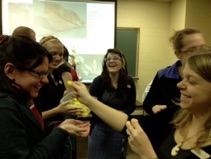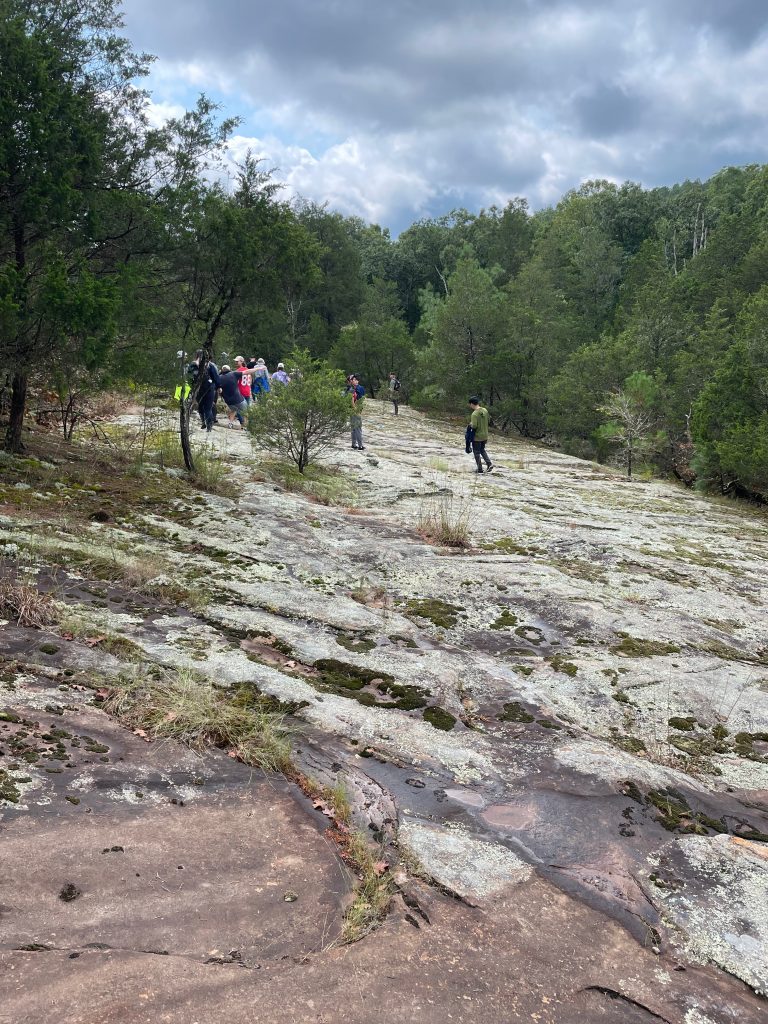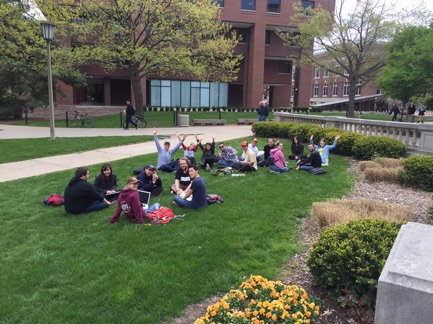Every fall:
IB 372: Ecology and Evolution
M/W/F 11-12:20 plus Labs Tuesdays 1-5pm
Instructor: Katy Heath and Jim Dalling
Credit: 3 hours
This course, designed for upper-level undergraduates and beginning graduate students, focuses on ecological and evolutionary genetics and genomics. What is ecological genetics? Broadly, we might think of ecological genetics as the subset of evolutionary biology that focuses on various questions that require studying the distribution of genetic variation for fitness-related traits in natural populations. Topics to be covered include, but are not limited to, quantitative genetics, population genetics, natural selection, molecular evolution, speciation, and coevolution. Prerequisite: a basic genetics course (IB 204) and a basic evolution course (IB 302).
Every other Spring (2017, 2019, 2021, 2023):
IB 405: Ecological Genetics
T/Th 11-12:20
Instructor: Katy Heath
Credit: 3 hours
This course, designed for upper-level undergraduates and beginning graduate students, focuses on ecological and evolutionary genetics and genomics. What is ecological genetics? Broadly, we might think of ecological genetics as the subset of evolutionary biology that focuses on various questions that require studying the distribution of genetic variation for fitness-related traits in natural populations. Topics to be covered include, but are not limited to, quantitative genetics, population genetics, natural selection, molecular evolution, speciation, and coevolution. Prerequisite: a basic genetics course (IB 204) and a basic evolution course (IB 302).
Previously each fall:
204 Genetics
Instructors: Katy Heath and Amy Marshall-Colon
Credit: 3 or 4 hours
The fundamentals of inheritance, with an emphasis on eukaryotes. Major topics include transmission genetics, quantitative genetics, cytogenetics, genomics, genetics of development and behavior, and population genetics. Laboratory emphasizes an experimental, inquiry-based approach to modern and classical genetics. Lecture only, 3 hours; with laboratory, 4 hours. Students must complete the laboratory portion of the course to receive 4 hours of credit. Students may not receive credit for both IB 204 and IB 201. Prerequisite: IB 150 and MCB 150.
Graduate Seminars and Reading Groups, for example:
IB546: Spring 2019, From genotype to phenotype to fitness (with Charles Roseman)
IB546: Spring 2017: Mutualism (with Alex Harmon-Threatt)
IB546: Spring 2016: Metagenomics in Ecology and Evolution
IB 496: Current Readings in Evolutionary Genomics
IB 546: Evolutionary Genomics and Genetics Organization (EGGO aka EGG aka EGO): various semesters (with Becky Fuller, Alison Bell, Rachel Whitaker, Julian Catchen, Zac Cheviron)
IB 518, Fall 2011, Ecology & Evolution of Mycorrhizas, with Jim Dalling
IB 496, Spring 2010, Phenotypic Plasticity (with Carla Cáceres)
Fall 2012
IB 496: Amplify the Signal: Communicating Science Beyond a Scientific Audience
Check out our paper in BioScience.
Check up on the short articles on SIB grad student research in Science Politely
Tuesdays, 4-5:30pm
Instructors: Katy Heath (Plant Bio) and Elizabeth Bagley (Education)
Credit: 2 hours (A-F)
Biologists are increasingly expected to effectively translate complex research concepts and findings to the general public. Funding agencies require researchers to outline “broader impacts” activities in proposals and then follow up to see that these activities are successfully completed. This graduate seminar is designed as a forum for you to develop the skills you will need to do this effectively, including proposal writing, providing critical feedback, and evaluating the impact of your outreach activities. In an engaging, collaborative environment, you will propose, develop, and participate in authentic broader impacts activities in three ways:
- dynamic, scientifically-accurate lesson plans for middle school students,
- creative, clearly-written articles for an online publication, and
- concise, engaging material for a short radio program.
After participating in this seminar, you will have a better idea of what an effective broader impact is, and be able to add multiple lines to your CV indicating experience in this realm!




These are known as fast plants and were for a QTL mapping experiment in Genetics lab
